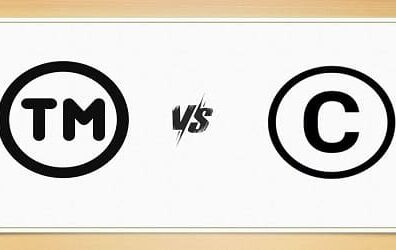PRIVATE COMPANY VS. PUBLIC COMPANY: A COMPARATIVE ANALYSIS UNDER THE COMPANIES ACT

Introduction
The Companies Act, 2013, introduced significant changes in the corporate landscape in India. Among its many provisions, it classifies companies into two primary categories: public companies and private companies. Understanding the differences between these two types of entities is crucial for entrepreneurs, investors, and business owners. In this article, we will delve into the distinctive features of public and private companies as defined by the Companies Act, 2013, and explore the implications for businesses operating under each structure.
Definitions
The term Company is derived from two Latin words first being “COM” which means “With or Together” and second word “PANIS” which means “bread”. Company is an artificial person incorporated under the Companies Act, 2013 or any other previous acts by likely minded persons with the purpose of carrying out certain activities either for making profit or not making profit, as the case maybe. The Company is a separate legal entity which can sue or get sued in its name, own property, enter into contracts and have Perpetual Succession.
In India, two type of companies that are commonly incorporated are private companies and public companies.
Private Company is a company having a minimum paid-up share capital as may be prescribed from time to time, and which by its articles of association, —
- restricts the right to transfer its shares;
- except in the case of One Person Company, limits the number of its members to two hundred:
Provided that where two or more persons hold one or more shares in a company jointly, for the purposes of this clause, they shall be treated as a single member:
Provided further that—
- person who are in the employment of the company; and
- person who, having been formerly in the employment of the company, were members of the company while in that employment and have continued to be members after the employment ceased,
shall not be included in the number of members; and
(iii) prohibits any invitation to the public to subscribe for any securities of the company.
Public Company means a company which –
(a) is not a private company;
(b) has a minimum paid-up share capital, as may be prescribed from time to time:
Further, provided that a company which is a subsidiary of a company, not being a private company, shall be deemed to be public company for the purposes of this Act even where such subsidiary company continues to be a private company in its articles.
Private Company Vs Public Company- Important Points
Sl No.
Particulars
Private Company
Public Company
1
Members and Ownership
The minimum number of shareholders in a private company is 2. Maximum number of members allowed is 200. Further, general public is not allowed to subscribe the shares of a private company. The shareholding is held by a close group of individuals.
The minimum number of members of a public company is 7. There is no limit on the maximum number of members being joined. It can raise funds from the general public by issuing shares to the general public through an initial public offering (IPO).
2
Number of Directors
The minimum number of Directors required in a Private company is 2. Directors are not required to retire by rotation.
The minimum number of Directors in a Public company is 3. In case of a public company at least 2/3rd of the directors must be such whose period of office is subject to retirement by rotation
3
Shares Transfer
The shares of the members in a company are movable property and transferable in accordance with the its Articles of Association. By definition, the Articles of Association of a private business must include the provisions of restrictions on transferability of shares. Hence, the shares may not be freely transferable.
A public company shares are freely transferable. In case the public company is listed then it allows the investors to buy and sell them on the stock exchanges where the company is listed.
4
Name
The name of the Private company must end with the words “PRIVATE LIMITED”
The name of the Public company must end with the words “LIMITED”
5
Regulatory Compliance
Private companies have less stringent regulatory compliances in comparison to public companies. Private companies have been exempted from many regulatory compliances under Companies Act.
Public companies are subject to more stringent regulatory compliance requirements in comparison to Private Companies. In case of listed public companies, they are required to make timely disclosures to the Stock exchange.
6
Listing on Stock Exchanges
A private company cannot get its shares listed on a stock exchange. However, they can get their debt securities such as non-convertible debentures listed on a recognized stock exchange. |
Shares of public companies can be listed on recognized stock exchanges, allowing investors to buy and sell them on the secondary market.
Conclusion
In summary, the distinction between public and private companies under the Companies Act, 2013, plays a crucial role in shaping the corporate landscape in India. Public companies have the advantage of easier access to capital but face more regulatory scrutiny. Private companies offer greater control and confidentiality but may have limitations when it comes to raising capital. The choice between these two structures should align with the specific goals and strategies of a business. Understanding these differences is essential for entrepreneurs and investors as they navigate the complex world of corporate governance and growth in India.
Follow Us
Keep Yourself Updated By Following Us




